|
|
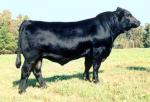
|
Balancer
|
|
Balancers are a hybrid breed created by crossing a purebred Gelbvieh with a purebred Angus. This 50% Gelbvieh - 50% Angus cross combines Gelbvieh's growth, muscle and leanness with Angus's calving ease, moderate size and marbling.
|

|
Barzona
|
|
The development of the Barzona began in 1942 when F.N. Bard, an Arizona rancher, decided to develop a breed that would be adapted to their area which was rugged and rocky, with extreme temperatures, sparse rainfall, and scattered feed. He used Hereford, Angus, Afrikander and Santa Gertirudis in more or less equal parts as the basis of the breed. Production records were maintained and a rigid selection was carried out for fertility, rate of gain and mothering ability.
|
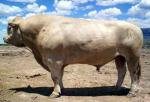
|
Beefalo
|
|
Beefalo is a cross between Bison (buffalo) and domestic or exotic cattle of any breed. The purpose of the species cross was to blend the outstanding qualities of the Bison with outstanding qualities of the bovine breeds of the world.
|
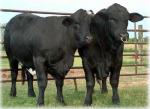
|
Beefmaster
|
|
Beginning in the early 1930s, Tom Lasater, the breed's founder, developed Beefmasters by crossing Hereford, Shorthorn and Brahman cattle. The exact mixture of the foundation cattle is not known, but is thought to be about 25% Hereford, 25% Shorthorn and 50% Brahman. Lasater's purpose was to develop cattle that would be more productive than existing breeds in the harsh environment of South Texas. The cattle were heavily selected on what has become known as the Six Essentials - Weight, Conformation, Milking Ability, Fertility, Hardiness and Disposition.
|
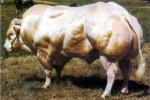
|
Belgian Blue
|
|
Belgian Blues are medium sized, heavy cattle, sometimes with a massive double muscle structure. Their colors are blue, white, and blue and white. Belgian Blues are small boned with a sloping rump, hidden hips, strong legs and a relatively small head. They are quite robust and healthy.
|
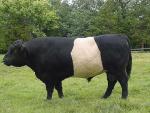
|
Belted Galloway
|
|
The 'Belties', like six other color variants, presumably originated centuries ago from the pure black Galloway. They were mentioned as early as the start of the 19th century.
|
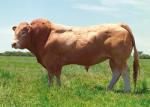
|
Blonde d'Aquitaine
|
|
The Blonde d'Aquitaine breed originated in the Garonne valley and the Pyrenees mountains area in the Aquitaine district of France.
|
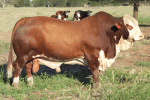
|
Braford
|
|
Alto Adams Jr. began developing Brafords on his Florida ranch in 1947. He began experimenting with various types of Brahman-Hereford cross bulls. Eventually he identified Braford bulls that were producing calves that met his needs and he used these bulls and their offspring to form what is recognized as the Foundation Herd of the Braford breed in the United States.
|
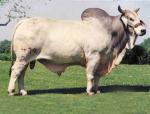
|
Brahman
|
|
Brahman are easily identified by the hump on their back and long floppy ears. The most common colors are solid gray or solid red. The Brahman breed originated from Bos indicus cattle originally brought from India. Through centuries of exposure to inadequate food supplies, insect pests, parasites, diseases and the weather extremes of tropical India, the native cattle developed some remarkable adaptations for survival.
|
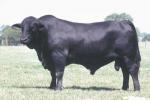
|
Brangus
|
|
The Brangus breed was developed to utilize the superior traits of Angus and Brahman cattle. Their genetics are stabilized at 3/8 Brahman and 5/8 Angus. The combination results in a breed which unites the traits of two highly successful parent breeds.
|

|
Braunvieh
|
|
Braunvieh means "brown cattle" in German. Brown cattle found in the mountains of Switzerland during the 17th century formed the basis for the modern Braunvieh. They are gaining recognition as a breed for moderate frame, calving ease, excellent disposition, efficiency in the pasture and in the feedyard.
|
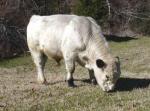
|
British White
|
|
The white cattle with the black points. The British White cow is of moderate size, 1000 to 1200 pounds.
|
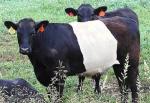
|
BueLingo
|
|
The BueLingo is a striking breed with it's white belt and black or cherry red forequarters and hindquarters. It is a moderate sized breed with female weighs between 1,000 and 1,200 pounds and bull weighs between 1,800 and 2,000 pounds. Birth weights typically vary between 65-80 pounds. Good carcass quality and modest marbling is accompanied by excellent taste. Fertility, desirable calving weights, vigorous calves with rapid maturation rates, excellent maternal instincts, and good dispositions are breed traits.
|
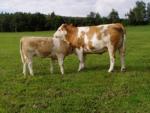
|
Beef simmental
|
|
First imports of Beef Simmental were realised in 1993 from Canada. Other importation followed: from Denmark and Germany. Altogether with heifers were imported also many bulls for breeding.
|
|
|